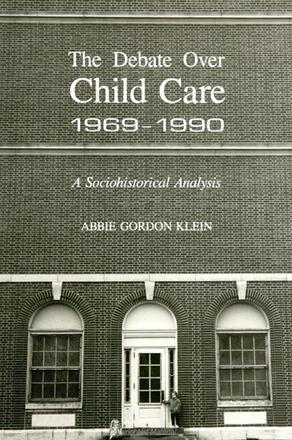
Debate Over Child Care, 1969-1990
A Sociohistorical Analysis
Alternative formats available from:
Description
The Debate Over Child Care: 1969-1990 offers a new perspective on the pervading problem of providing child care services in the United States. The author traces the contemporary debate over the sponsorship of child care services and compares this to the past debate over the sponsorship of kindergartens during the Progressive Era. Klein compares the function of child care across societal sectors, and points out that turf fighting and imbedded ideological differences have prohibited the development of a proactive social policy for providing needed child care services. She analyzes the advantages and disadvantages of five different sponsors: the public schools, the church, private enterprise, non-profit organizations, and corporations. Past and present federal legislation is discussed in relation to the divisive issue of sponsorship.
Abbie Gordon Klein is Assistant Professor in the Department of Education at John Carroll University and earned her Ph.D. in Social Welfare.
Reviews
"I most like the author's courage and willingness to arrive at conclusions in a complicated and value-laden policy area. She doesn't just stop at the end and say 'there are many different approaches' but follows through and uses her functionalist analysis to arrive at conclusions based on the evidence. Her conclusions are well-supported and cogent, and she explains pros and cons well in a clear, unbiased manner." — Barbara Beatty, Wellesley College